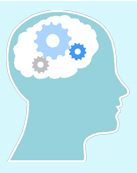When assessing a child with dyslexia/dyspraxia who has difficulty /is reluctant to write, for alternative recording methods, I usually suggest the use of a handheld voice recorder( VR) with standard sized tape Dictaphon tapes easily tangle and cannot be used on different machines).
It is very portable and can be used in conjunction with other aids such as spellmasters and wordprocessors.
Most schools are happy to comply, especially if the parent provides the machine.
If approached tactfully, many secondary teachers will use the VR during lessons with a lot of oral content, if they are in control of the machine. If there is more than one child
in the class who needs this support, copies of the tape can be made quickly.
The child/ teacher or a friend can dictate homework requirements into the machine. The child can dictate ideas for an essay or report before typing it up. Some pieces of work can be presented as a tape.
It is invaluable for recording results in practical science and design and tech. lessons.
Information from books can read onto the tape as notes when planning or doing research.
For poor readers, taped versions of textbooks can increase independent working in maths and other subjects.
Parent volunteers will often help to produce these.
This can be an effective intervention that is relatively cheap and easy to introduce, but there are a few potential pitfalls that can be got round:
1. Agreement between the parents and school needs to be reached on where and when the VR is used, *before* it is introduced into the classroom.
2. Short (30-45 min ) labelled tapes for each subject are more
effective than one long one, where work can get lost / over-written
3. Headphones are useful for private listening in public areas.
4. Encouraging group use where applicable (recording the planning of group projects etc) fosters peer group support and reduces the likelihood of teasing etc.
In some schools (both secondary and primary) and with some pupils it is a brilliant support, but if the teachers, peer-group or other contacts are luke-warm or even hostile, it is better to develop confidence in its utility, by using it at home.
Hope this gives parents some positive suggestions for supporting their children in less dyslexia-enlightened schools!

